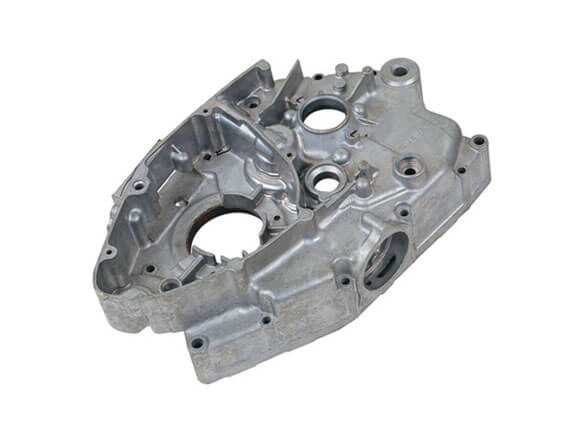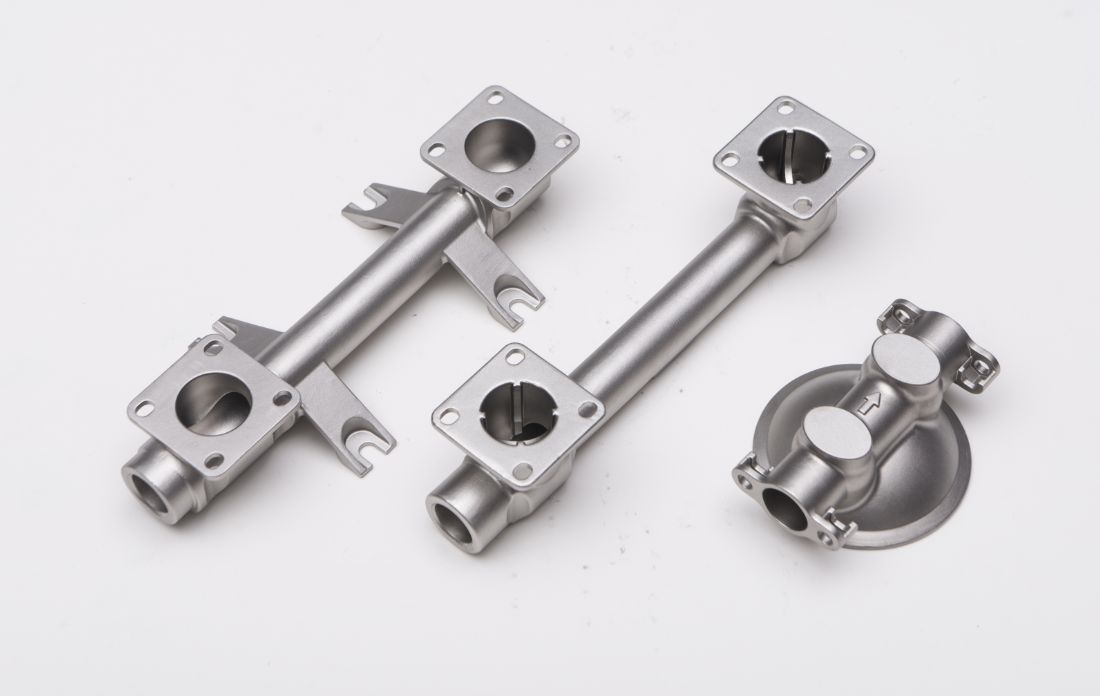Boost your production efficiency through high-performance Precision aluminum casting
Wiki Article
Exactly How Aluminum Casting Adds To Reliable Production Solutions
Aluminum casting plays a crucial role in modern-day manufacturing. Its light-weight nature and corrosion resistance make it a preferred choice for numerous industries. Techniques such as die spreading and sand casting permit for the creation of complex parts with very little waste. The assimilation of automation further boosts production performance. Nevertheless, the implications of these innovations prolong beyond plain productivity. Understanding the more comprehensive influence discloses significant understandings right into the future of productionThe Advantages of Aluminum in Production
Various steels are utilized in manufacturing, light weight aluminum stands out due to its one-of-a-kind residential or commercial properties that improve manufacturing performance and product performance. Its light-weight nature especially minimizes transport prices and energy demands in different applications. Light weight aluminum's superb corrosion resistance assurances durability and longevity, decreasing the demand for constant replacements and maintenance. This metal can be quickly formed and shaped, allowing for functional design options that meet certain sector needs. Additionally, light weight aluminum shows premium thermal and electric conductivity, making it a suitable choice for applications calling for effective warm dissipation and electrical administration. The recyclability of aluminum also plays a vital function in lasting production techniques, as it can be recycled without shedding its integral residential properties. On the whole, the benefits of light weight aluminum in producing lead to set you back financial savings, improved item longevity, and a minimized environmental impact, making it a preferred product in many markets.Key Aluminum Spreading Techniques
Light weight aluminum casting strategies are essential for creating premium parts in numerous manufacturing processes. The main approaches consist of sand casting, pass away casting, and investment casting. Sand spreading entails producing a mold from sand, which enables complex shapes and big components. This method is commonly favored for its cost-effectiveness and versatility. Die spreading, on the other hand, makes use of high-pressure to infuse molten light weight aluminum into steel mold and mildews, causing precise, uniform parts suitable for high-volume production. Investment casting provides premium surface coating and elaborate detail by making use of a wax pattern that is thawed away to develop the mold and mildew. Each of these methods has details applications and advantages, allowing manufacturers to choose the most appropriate method based on aspects like manufacturing product, intricacy, and volume specs. By understanding these crucial strategies, producers can boost their manufacturing performance and assure the integrity of their light weight aluminum parts.Influence On Automotive Industry
As the vehicle sector significantly prioritizes lightweight materials to enhance fuel efficiency and efficiency, light weight aluminum spreading has emerged as an essential remedy. This production procedure allows car manufacturers to generate intricate parts with lowered weight without endangering architectural honesty. By utilizing light weight aluminum casting, suppliers can develop components such as engine blocks, transmission housings, and suspension elements that are not only lighter but likewise exhibit outstanding thermal conductivity and corrosion resistance.The convenience of light weight aluminum spreading techniques makes it possible for the production of complex designs, assisting in advancement in automobile visual appeals and functionality. As cars become extra technically advanced, the capacity to integrate functions like sophisticated safety and security systems and electric drivetrains ends up being essential.

Aerospace Applications of Light Weight Aluminum Casting
Light weight aluminum spreading plays a crucial duty in aerospace applications by enabling the production of lightweight structural components that enhance gas efficiency. Furthermore, the accuracy of aluminum casting enables the development of complex engine components, which are necessary for peak efficiency and reliability. This mix of light-weight materials and exact engineering placements aluminum spreading as an essential modern technology in the aerospace sector.Lightweight Architectural Components
In the pursuit for enhanced performance and efficiency in aerospace applications, lightweight architectural parts have ended up being progressively crucial. Aluminum casting plays a critical duty in this endeavor, providing suppliers with the ability to create components that are both solid and lightweight. The reduced density of light weight aluminum enables substantial weight decreases without jeopardizing structural integrity, which is critical for airplane efficiency and gas effectiveness. In addition, light weight aluminum spreadings can be engineered to satisfy particular design demands, making it possible for the production of complex geometries that conventional manufacturing approaches might battle to accomplish. This adaptability not just improves production procedures but also contributes to total cost financial savings. As the aerospace market remains to emphasize sustainability, the need get more info for light-weight aluminum elements is expected to increase, additionally advancing innovation in manufacturing.Accuracy Engine Parts
Makers progressively count on aluminum casting to create accuracy engine parts for aerospace applications, driven by the product's one-of-a-kind homes. Aluminum's lightweight nature significantly minimizes general airplane weight, enhancing gas efficiency and efficiency. Its outstanding deterioration resistance assurances long life in rough environments, making it suitable for vital engine parts. Additionally, aluminum spreading enables detailed layouts and tight resistances, vital for optimizing engine performance and dependability. The casting procedure also supports mass production, allowing manufacturers to meet high demand while preserving top quality criteria. As aerospace innovation remains to development, the duty of light weight aluminum spreading in creating accuracy engine parts will certainly be critical in accomplishing higher effectiveness and development in aircraft style and capability.Sustainability and Ecological Benefits
The expanding focus on sustainability in manufacturing has placed light weight aluminum spreading as a leading option for ecologically conscious production. This process utilizes recycled light weight aluminum, which significantly minimizes energy consumption contrasted to main aluminum manufacturing. By leveraging scrap steel, suppliers can decrease their carbon footprint and reduce waste, lining up with international sustainability goals.Furthermore, aluminum casting creates fewer unsafe exhausts, adding to a cleaner environment. The light-weight nature of light weight aluminum likewise boosts fuel efficiency in transportation applications, additionally promoting environmentally friendly practices.
The sturdiness and rust resistance of aluminum lead to longer item life expectancies, decreasing the requirement for constant replacements and conserving sources. As markets progressively prioritize lasting selections, aluminum spreading stands apart as an ingenious approach that not only meets manufacturing needs but likewise sustains ecological stewardship. This commitment to sustainability positions aluminum casting as a pivotal gamer in the shift towards a greener production landscape.
Cost Efficiency in Production
Price efficiency is a significant advantage of aluminum spreading, matching its sustainability advantages - Aluminum Foundry. The process of light weight aluminum spreading permits the production of complicated forms with minimal waste, which is especially essential in a competitive production atmosphere. Utilizing aluminum reduces energy costs, as it has a reduced melting factor contrasted to various other metals, causing lowered power usage during productionFurthermore, aluminum's lightweight residential properties contribute to reduce delivery and taking care of costs, additionally boosting total expense efficiency. The resilience and corrosion resistance of light weight aluminum cast items likewise indicate that they call for less maintenance and replacement in time, causing long-term savings for suppliers.
Additionally, innovations in casting modern technologies, such as improved mold layouts and automation, have streamlined manufacturing procedures, decreasing labor costs and increasing outcome effectiveness. On the whole, expense performance in light weight aluminum casting plays a crucial duty in optimizing production procedures and supporting affordable pricing approaches.
Future Patterns in Light Weight Aluminum Spreading
The future of aluminum casting is progressively shaped by advancements in automation and lasting product technologies. Automation technologies are anticipated to boost efficiency and precision in the casting process, while lasting methods aim to minimize ecological effect. With each other, these trends promise to redefine production criteria and practices within the light weight aluminum spreading sector.Automation in Aluminum Casting
Welcoming automation is changing light weight aluminum casting processes, leading the way for boosted efficiency and precision. Automated systems improve production by lessening human treatment, minimizing errors, and raising throughput. Technologies such as robotic arms and computer mathematical control (CNC) devices enable constant and precise shaping of light weight aluminum components. Additionally, wise sensing units monitor different criteria in genuine time, ensuring optimal conditions throughout the spreading process. This assimilation of automation not just reduces lead times however likewise enhances item top quality by maintaining tighter resistances. As producers increasingly adopt these sophisticated technologies, the light weight aluminum casting industry is set to experience significant renovations in operational efficiency, cost-effectiveness, and competitiveness in the international market.Sustainable Material Innovations

Regularly Asked Questions
What Types of Light Weight Aluminum Alloys Are Commonly Made Use Of in Spreading?
Frequently used light weight aluminum alloys in casting consist of 356, 380, and 413. These alloys are preferred for their exceptional fluidness, strength, and rust resistance, making them ideal for a selection of industrial applications.Exactly How Does Light Weight Aluminum Casting Contrast to Other Metal Spreading Approaches?
Aluminum casting usually offers lower weight, exceptional deterioration resistance, and much better thermal conductivity compared to other steel spreading approaches. Additionally, it allows for complex layouts and faster manufacturing cycles, boosting total manufacturing effectiveness and efficiency.What Industries Benefit Many From Aluminum Spreading?
The automobile, aerospace, and electronics industries benefit most from light weight aluminum spreading. These fields utilize its lightweight, corrosion-resistant homes to improve efficiency, lower fuel usage, and enhance general item efficiency, making aluminum casting progressively important.Are There Certain Design Limitations With Aluminum Casting?
Yes, aluminum casting has style constraints, consisting of limitations on wall surface density, complicated geometry obstacles, and prospective problems with achieving limited tolerances (Aluminum Casting Company). These variables can impact the total toughness and performance of the end productExactly How Is Quality Assurance Maintained in Aluminum Spreading Processes?
Quality control in aluminum casting procedures is kept with rigorous evaluations, adherence to standardized treatments, and using innovative modern technologies. Normal monitoring warranties dimensional precision, surface area honesty, and material uniformity throughout production, promoting overall integrity.As the automobile industry significantly focuses on lightweight materials to enhance gas effectiveness and performance, aluminum spreading has emerged as an important solution. Aluminum spreading plays an essential role in aerospace applications by enabling the manufacturing of lightweight architectural elements that improve gas efficiency. Expense efficiency is a substantial advantage of light weight aluminum casting, complementing its sustainability advantages. Embracing automation is transforming light weight aluminum casting procedures, leading the means for boosted performance and precision. Recycled light weight aluminum use has actually gotten grip, significantly reducing power usage contrasted to main light weight aluminum manufacturing.
Report this wiki page